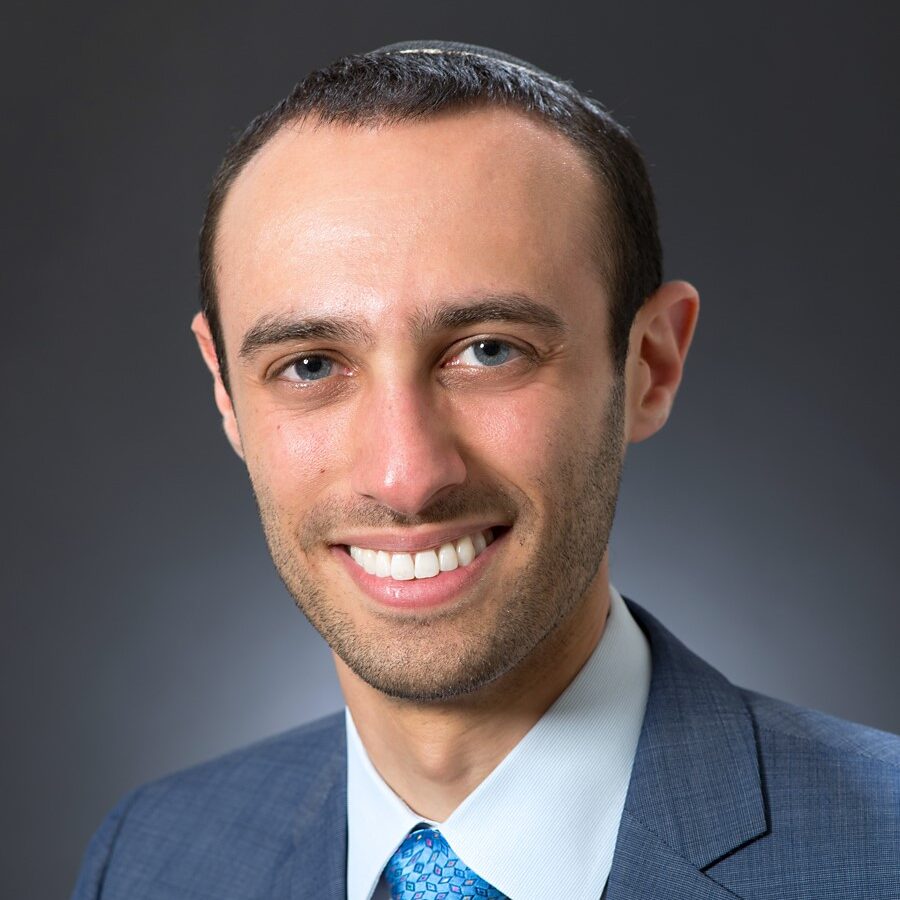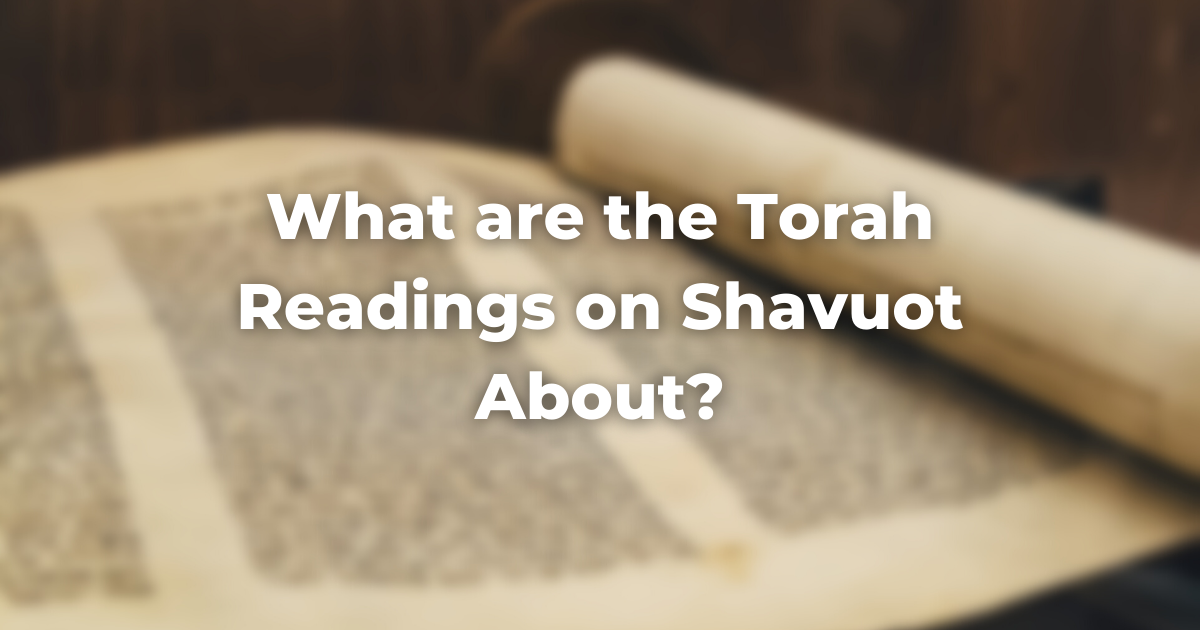Shavuot is perhaps one of the most underappreciated Jewish holidays of the year.
Always falling seven weeks after the onset of Passover, it finds itself at the end of the school year, when very little attention is given to its explanation and celebration. Truthfully, Shavuot does not come with the same sort of pomp and circumstance as the other major festivals of the Jewish calendar. There is no structure to build, no leafy green item to wave, no seder table to prepare.
Rather, it is a festival focused upon something that is regularly part of who we are and what we do as Jews—the TorahRefers to the first five books of the Hebrew Bible, the Tanakh, also called the Five Books of Moses, Pentateuch or the Hebrew equivalent, Humash. This is also called the Written Torah. The term may also refer to teachings that expound on Jewish tradition. Read more!
Each of the pilgrimage festivals (Passover, Shavuot, and Sukkot) has an agricultural component rooted in its ancient celebration. Additionally, each one has taken on a historical significance as well.
Sukkot commemorates the time spent in the desert protected by God’s abiding Presence, Passover marks the exodus from Egypt, and Shavuot celebrates the moment when we stood at the foot of Mount Sinai and received the Torah from God. Passover is about redemption, whereas Shavuot is about revelation.
The First Day of Shavuot
It is therefore fitting that on the first day of the Shavuot Torah reading we read about the revelation at Mount Sinai (Exodus 19:1-20:23).
Before the moment of revelation itself, there was a required period of preparation. For seven weeks the Israelites journeyed from Egypt to Sinai. During that time they were to shed the mindset of slavery and learn to commit themselves to God and to one another, rather than to Pharaoh and Egypt. But this was not sufficient. Once they arrive at Sinai, they must wait for three more days, preparing themselves to become “a kingdom of priests and a holy nation” (Exodus 19:6). Only then might they be ready for what comes next.
Revelation would be intense. The thunder clapped, lightning struck around the mountain, a thick cloud of fog enveloped the space, and blasts from horns emanated from the mountain.
In the midst of this atmosphere would God speak to Israel, sharing with them what we often refer to as the Ten Commandments, but perhaps better understood as the Ten Utterances, Aseret HaDibbrot—ten proclamations that God would make for all of Israel to follow.
In the millennia since that day, Judaism has affirmed that revelation may have started at Sinai, but it has never truly ceased.
After the text of the Torah came the remainder of the Hebrew Bible with the Prophets and Writings. After that came the Oral Law as recorded in the MishnahA collection of rabbinic teachings edited in Israel around 225 CE. Organized in six sedaraim by subject matter and dealing with both ritual and civil law. Both the Jerusalem and Babylonian Talmud are expansive discussions of the Mishnah. Read more, the TalmudReferring to one of two collections, the Jerusalem and Babylonian Talmuds, edited in the 6th century, that contains hundreds of years of commentary, discussion, and exploration of the ideas in the Mishnah. One could describe it as Mishnah + Gemara = Talmud Read more, and countless collections of MidrashimThis word is used in two ways, as both a concept and a literature. As a concept, midrash is the expansive interpretation of biblical texts. The term is used to describe the practice of rabbinic interpretation. As a text, it refers to specific collections of interpretations, particularly from the third to ninth centuries in the Land of Israel and Babylonia. Plural: Midrashim
Read more. To this very day, Jews study Torah to uncover new meanings, find innovative understandings, and keep the words of this ancient text alive in all that we say and all that we do.
The Second Day of Shavuot
In most Jewish communities of the diaspora, a second day of each holiday is observed. On the second day of Shavuot Torah reading on a weekday, we read a selection from Deuteronomy 15:19-16:17. When the second day falls on Shabbat, we read from Deuteronomy 14:22-16:17 and a maftir from Numbers 28:26-31.
This is one of a few places in the Torah which describes the Israelite festival calendar. Here we see the agricultural context for the celebrations. Shavuot is the conclusion of the first part of the harvest, and is meant to be a celebration for all of Israel.
No mention is made of the Torah or revelation. Rather, here we see (and moderns mostly fair to appreciate) the dependence of the nation on the land.
Most of us are fortunate to have a house full of food and a grocery store nearby stocked with whatever it is that we may need. Occasionally we feel a pinch when a certain product is unavailable, but generally speaking we are blessed with bounty.
Our ancestors in ancient Israel were subject to the fluctuation of natural forces in the region, and thus were much more reliant upon (and attuned to) the land.
Reading this selection on Shavuot is a helpful reminder to us all that despite our relative comfort, food insecurity is still a real problem that faces millions of people on a daily basis, and one that we should work towards addressing.
Taken together, the messages of the Shavuot Torah readings remind us that we are a nation with an unending responsibility to learn from our tradition and to apply its timeless teachings to our lives.
Torah is not only the words in the scroll, but the teachings of every generation that has lived since that moment.
It is our responsibility as a Jewish community to carry those teachings forward, to uncover new ones, and to live by these words as we seek to build a world that reflects our sacred responsibilities as “a kingdom of priests and a holy nation.”
Author
-

Rabbi Mitchell Berkowitz is the Associate Rabbi at B’nai Israel Congregation in Rockville, MD. He was ordained in May 2017 by the Rabbinical School at the Jewish Theological Seminary of America. While in rabbinical school, Rabbi Berkowitz served as the rabbinic intern at Shelter Rock Jewish Center in Roslyn, NY. He holds a Master of Arts in Talmud and Rabbinics from the Graduate School at JTS, and Bachelor’s Degrees in History and International & Global Studies from Brandeis University. Rabbi Berkowitz oversees the Sara & Samuel J. Lessans Adult Education Institute, and teaches a weekly Talmud class.
View all posts




